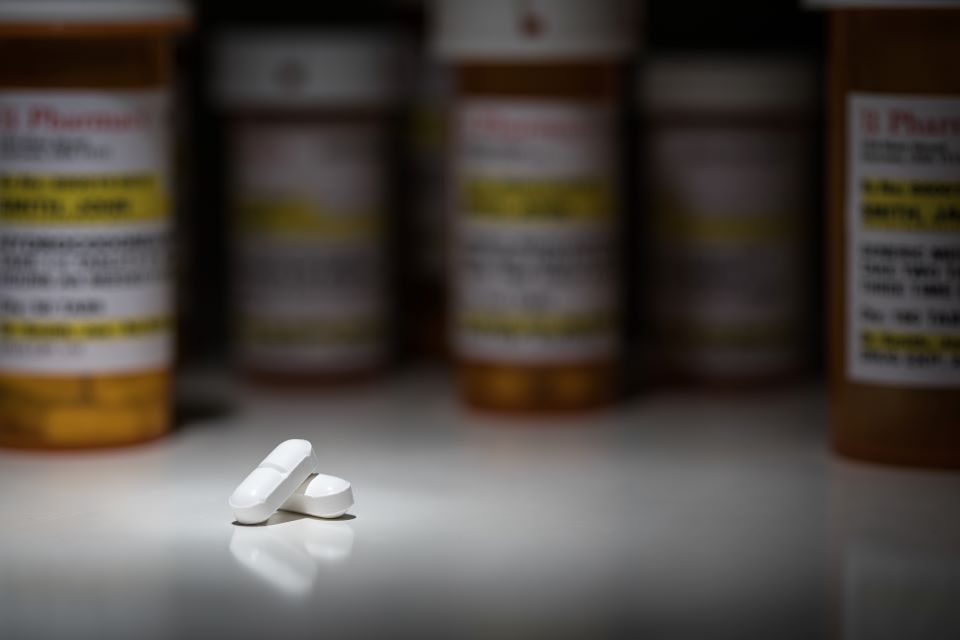Is Your Loved One Addicted to Opioids?

When a person struggles with addiction, the associated stigma often drives that person to hide their suffering. This can include coworkers and medical professionals, but most of all, it is hidden from those that love them the most…their family and friends. No matter the substance, many who struggle with addiction are crippled by shame and fear, hindering them from receiving the help they so desperately need. In our experience, we have found this to be especially true for those who have become dependent on opioids, whether through black-market sales or legal prescriptions.
It is no secret that opioid addiction has become an escalating issue across our country for some time now. So much so, that is now recognized as an epidemic plaguing society, affecting people from all walks of life. According to the National Institute on Drug Abuse, roughly 21% to 29% of patients who are prescribed opioids for medical reasons end up abusing them. Furthermore, as of 2019, they estimate that more than 130 people die in the United States each day because of an opioid overdose. These numbers are terrifying and reveal the broad range of people that are affected, and because of that, you likely know someone that has misused opioids at some point in their life.
Given how common this problem is, it is imperative to know how to recognize the signs of opioid use disorder and understanding the treatment process. Having this knowledge can potentially save the life of someone you love very much, allowing them to receive the care they need before it’s too late. If you fear that someone you know is struggling with opioid misuse, here’s what you need to know.
Why are Opioids Such a Risk?
Opioids are prescribed to patients who are dealing with pain, often in relation to an injury or recent surgery they have undergone. While legal in these circumstances, each time a person takes an opioid they are putting themselves at risk. The risk is small at first, but overtime and with repeated use it grows significantly.
When a person takes an opioid it progressively changes their brain. Repeated use prompts them to desire the drug to the point where the brain is “rewired,” becoming dependent on it. At this point, the body has adapted itself to the presence of opioids and when or if use is abruptly stopped, a person can begin to experience symptoms of withdrawal. This can include many uncomfortable or even painful side effects, such as vomiting, sweating, insomnia and anxiety and is a main reason why many people continue taking opioids. In other words, it conditions them to not only crave the drug but believe that it is necessary for survival as it allows them to avoid withdrawal.
What are the Symptoms of Opioid Use Disorder?
Becoming familiar with the symptoms and behavioral changes of opioid use is the first step to learning how to spot an opioid addiction. The extent of these side effects will vary based on how long a person has been using opioids and to what degree they are using them.
Some of the common symptoms to watch for are:
- Dry mouth
- Constipation
- Euphoric highs
- Constricted pupils
- Decreased coordination
- Confusion
- Fatigue
- Nausea and vomiting
- Slowed heart rate
- Shallow breathing
- Loss of appetite
- Dizziness
- Low blood pressure
During later stages of an addiction, more serious symptoms may also begin to appear and carry the potential for causing permanent damage. These can include:
- Weakened immune system
- Gastrointestinal issues
- Respiratory depression
- Blood infections and bloodborne illnesses
- Sexual dysfunction
- Brain damage
- Decreased cognitive abilities
Behavioral Changes and Other Signs
Opioid addiction carries with it a serious stigma in society, which often drives people to hide their drug abuse from others. This stigma largely grew out of misunderstanding and stereotypes regarding the kinds of people who develop addictions. These stereotypes labeled them as weak–willed, uneducated and careless. In reality, the modern face of addiction knows no bounds, and everyone who has access to medical care is potentially at risk. Nonetheless, the old misconceptions continue to remain a popular viewpoint for many.
To save themselves and their loved ones from such stigmas, some will go to great lengths to hide their condition and avoid help. This often involves hiding their symptoms, and as a result the best way to know when someone has developed an addiction is to look for shifts in their behavior.
Common behavioral changes in a loved one involve:
- Frequent mood shifts
- Appetite changes
- Sudden weight gain or loss
- Losing interest in old hobbies
- Isolating from others
- Avoiding friends and family
- Suddenly shifting social circles
- Stealing or borrowing money
- Difficulty following schedules
- Ignoring personal hygiene
- Neglecting responsibilities like work and family
- Getting into trouble with the law
- Struggling financially (for no clear reason)
- Visiting multiple doctors or continuously switching doctors to receive prescriptions (known as doctor shopping)
- Wearing winter clothing in warm weather
The changes in one’s behavior will vary depending upon the severity of their substance use disorder and the accompanied side effects. This can make some of the changes difficult to spot, especially if the individual is trying hard to conceal it. What might seem like a minor shift in tastes, such as an individual wearing long sleeves and pants when they would usually wear summer clothing, could actually be a subtle hint that something bigger is happening. In this case, the individual might be trying to hide a weight change or scars from intravenous drug use, otherwise known as “track marks.”
It is worth noting that many drugs cause similar side effects when they are abused, which makes it tricky to tell whether a person is abusing an opioid or a different drug with similar effects. As a result, the only way to confirm with absolute certainty that a loved one is abusing an opioid is to catch them in the act or get them to admit to it. Regardless though, if a person is showing major behavioral shifts, it is time to offer them help before there is an emergency. Misusing a substance presents a serious health risk even for legal drugs like prescription opioids, and to wait may mean that help comes too late.
Treatment for Opioid Use Disorder
Like many other substances, opioid use disorder can entail various levels of care and treatment programming options. In order to know what services would work best for your loved one, it is best to consult with an addiction treatment professional. Most often, treatment begins with detoxification, a process in which all harmful substances are safely removed from the individual’s system while under the care and management of a medical team. Detox from opioids can create uncomfortable, painful and sometimes, harmful withdrawal symptoms. Thus, it is imperative to always seek the care of a professional and never attempt to quit “cold turkey”.
Once detox is complete, most patients transition to residential treatment, where various therapeutic modalities are utilized. It is here that patients can begin to learn more about themselves, their reasons for abusing opioids and other drugs, and develop healthy coping mechanisms to carry with them after treatment. Some therapeutic techniques may include one-on-one counseling, gender-specific groups, biosound therapy, recreational therapy, holistic treatment and family counseling. Upon completion of residential treatment, the individual will work closely with their counselor and case manager to create an aftercare plan that is not only tailored to their needs but gives them the best opportunity for long-term success.
At this stage, the individual can transition to a lower level of care such as partial hospitalization programming with housing, intensive outpatient, sober living or extended care. Again, each person’s recovery process is different from the next, so finding the right fit for your loved one would be determined after thorough evaluation and work with their counselor.
Call Today for Opioid Addiction Treatment
If you suspect or have recently discovered that your loved one is addicted to opioids, you may be feeling discouraged, helpless or utterly hopeless. We completely understand but want you to know that there is hope. Through the proper help and treatment options, your loved one can make it to the other side and discover all the possibilities of a life…recovered.
To learn more about Brookdale, our services or how to begin the admissions process, please call us today at (855)575-1292.

